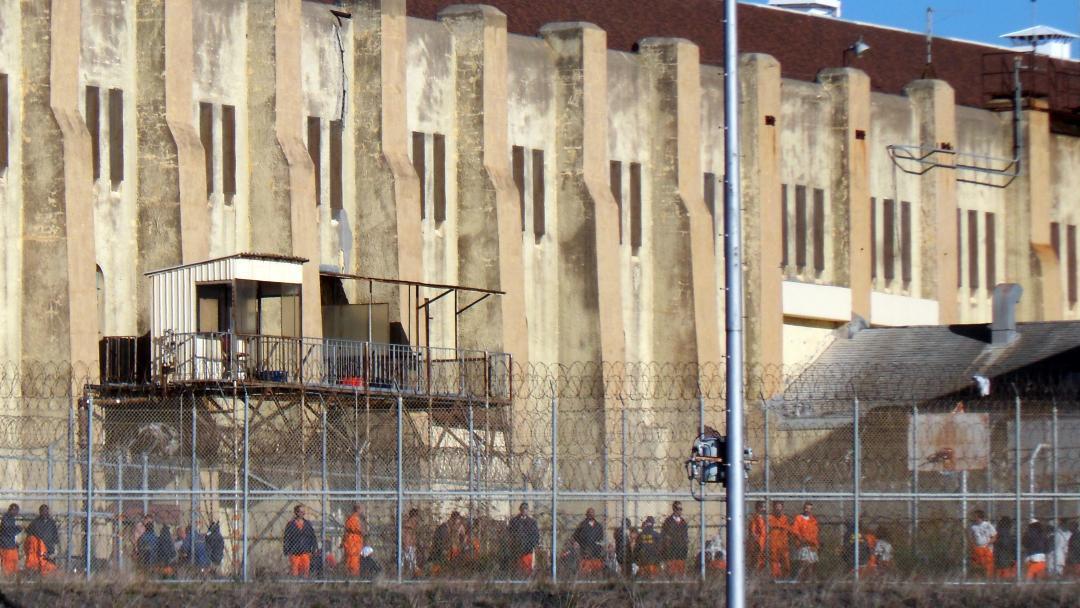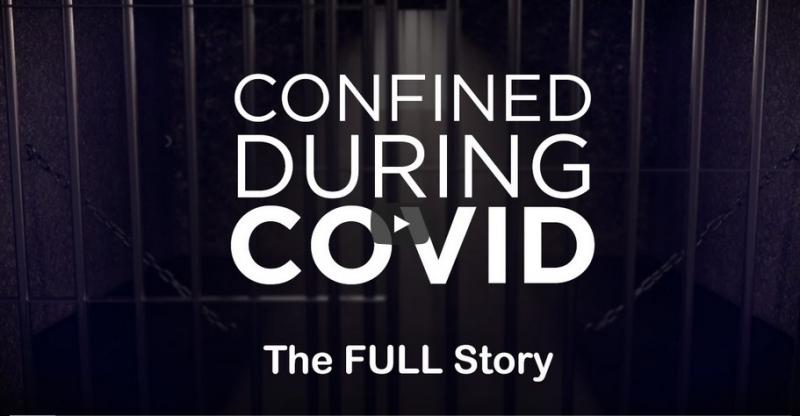
Faculty members and graduate students raise funds for protective equipment
By Mimi Ko Cruz
More than 10,000 prisoners in California have contracted COVID-19 and 55 have died. The virus is spreading at an alarming rate in prisons throughout the state and UCI faculty members and graduate students have launched an effort to curb the epidemic.
Through a new website and a fundraising campaign, the criminology, law and society faculty members and doctoral students Joanne DeCaro and Gabe Rosales (in collaboration with nursing and sociology professors) are raising awareness and funds to purchase supplies to keep prisoners and prison staff safe during the pandemic.
The goal is to raise $10,000 to provide PPE (personal protective equipment), care packages, and other resources to people who are incarcerated in California prisons, says Naomi Sugie, associate professor of criminology, law and society. “These donations will support efforts to stop COVID-19 from spreading throughout our state’s prisons, affecting our most vulnerable community members, employees and staff in prisons, and surrounding communities.”
The alarming numbers of prison staff and inmates infected with COVID-19 makes this a public health, community and racial justice crisis, according to the Confined During COVID-19 website.
In this video, members of Underground Scholars at UCI, and Project Rebound at SDSU speak about the crisis.
They point out:
Prisons are even more vulnerable to COVID-19 than nursing homes and hospitals.
Prisoners in California have high rates of underlying health conditions that are risks for COVID-19, like hypertension and obesity — conditions that are caused and exacerbated by confinement.
Prisons in the state are over capacity, for example by 130% in Chuckawalla State Prison and 142% in Avenal, making it extraordinarily difficult to implement any social distancing measures.
Prisons are under-resourced: employees inside these facilities have expressed concerns about shortages of basic cleaning supplies and PPE, in addition to officers and staff being overworked and under extraordinary stress.
Prisons are a last stop along a path of unequal educational systems, racially discriminatory labor markets, and aggressive policing tactics.
Nationally, Black people are incarcerated in state prisons at six times the rate of White people, and Latinx people are incarcerated at three times the rate of White people.
In California, Black adults are incarcerated at rates that are higher than any other state.
People in prisons are mothers and fathers. They are sons, daughters and siblings. They have families who are worried and angry.
Prisons are not physically isolated facilities, and COVID-19 outbreaks have spread to California towns and cities through the officers and employees who travel to and from work daily.
For more information and updates about the campaign, what is happening in California prisons, and how to help, visit the Confined During COVID-19 website. To make a donation, go to: https://zotfunder.give.uci.edu/project/22131.
In related matters, Sugie and 17 other prominent criminal justice and corrections scholars, including criminology, law and society faculty members Valerie Jenness, Keramet Reiter, Christopher Seeds and Carroll Seron, as well as the ACLU of Northern California, recently joined a litigation effort before the Marin Superior Court as amici curiae on behalf of people incarcerated at San Quentin seeking relief from the worst COVID-19 outbreak in the country.
In their brief, they argue that state and prison officials had ample warning that a health crisis of this magnitude could occur at San Quentin, both from decades of watching a bloated system unable to provide basic healthcare and from specific warnings they received about COVID-19 from criminal justice and public health experts. They argue that, in addition to the botched transfer from Chino to San Quentin, prison authorities failed to provide basic preventative measures, such as testing, protective equipment, and cohorting, even though they received not only advice, but offers of assistance. They urge the court to intervene, because political considerations and restrictive federal legislation stand in the way of other relief options.
“Essentially, dozens of prisoners at San Quentin State Prison, which is experiencing one of the worst COVID-19 outbreaks in the country, filed individual habeas corpus petitions seeking release from prison, because the conditions are so dangerous, healthcare so inadequate, and the individuals so vulnerable, that keeping them in prison would violate their 8th Amendment right to be free from cruel and unusual punishment,” says Reiter, associate professor of criminology, law and society. “We filed this amicus brief on behalf of all the petitioners, supporting their claims that conditions at San Quentin do, indeed, violate basic constitutional standards.”
Reiter is director of the newly launched Leveraging Inspiring Futures Through Educational Degrees (LIFTED), the first in-prison B.A. completion program offered by the University of California system to enable incarcerated individuals to earn a bachelor’s degree in sociology from UCI.
Related:
Higher education means lower recidivism
